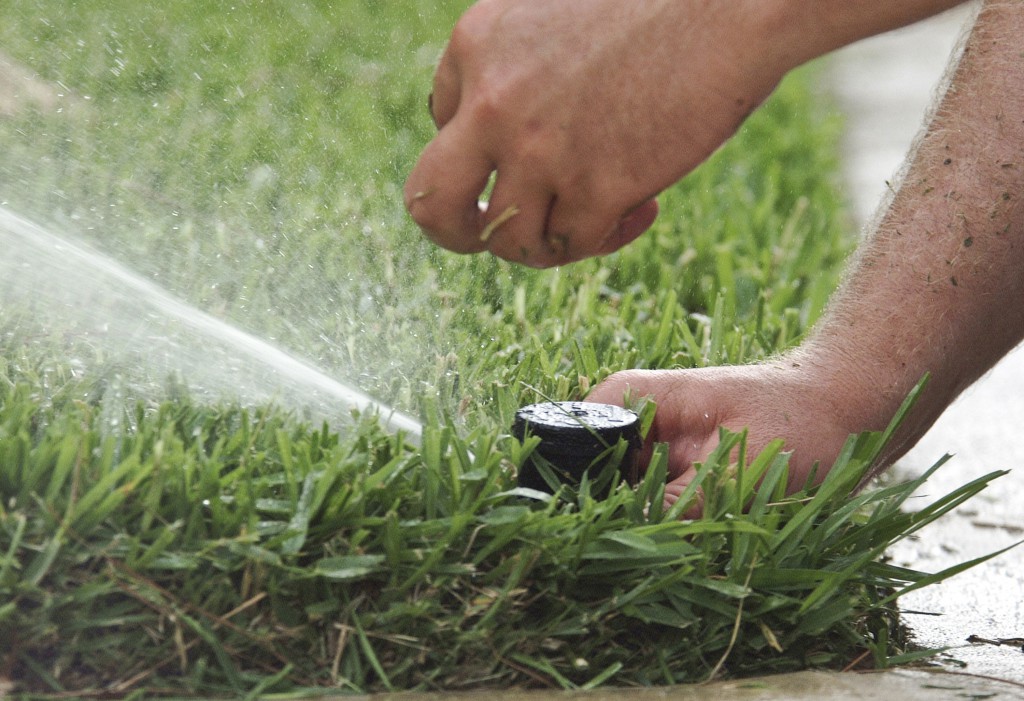
Make Sure Your Irrigation System Is Ready for Spring and Summer
March 15 2023
Making sure your Irrigation System is ready for Spring and Summer can not only save you money, but keeps your lawn green and flowers blooming through the seasons. By having your system checked by a professional irrigation specialist and doing a quick check on a regular basis yourself can save you money, protect your lawn from water damage and keep your lawn healthy.
INSPECTING YOUR IRRIGATION SYSTEM
Having your irrigation system inspected might not seem like an important box to check on your spring to-do list, but your system working properly can mean the difference between a beautiful “Yard of the Month worthy” yard or a “Receiving a letter from the HOA because your yard is dead” yard. Inspections can ensure that everything from your backflow preventer to the sprinkler heads are performing properly.
Although a specialist knows the ins and outs of your system, you can absolutely check it yourself. Here is a list of things to look for:
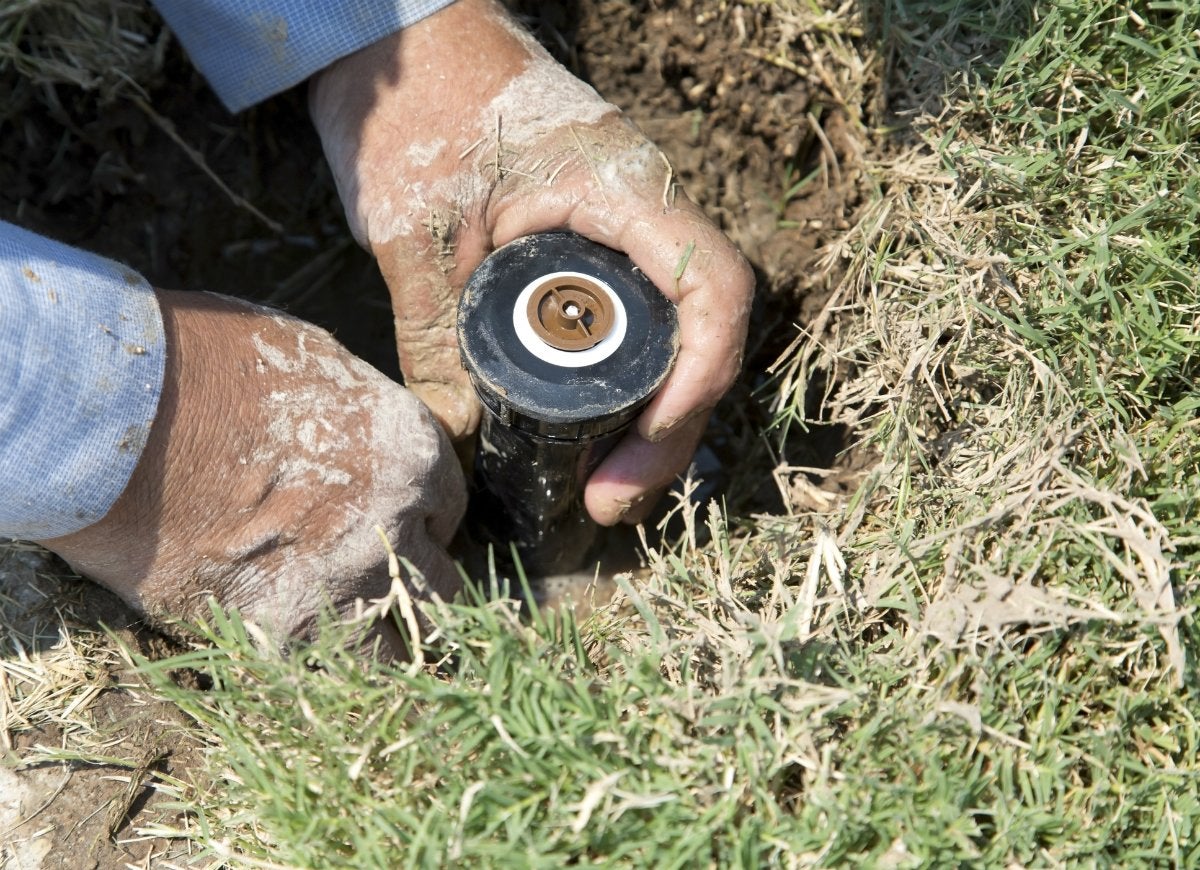
INSPECT SPRINKLER HEADS BEFORE TURNING WATER BACK ON
- Remove any debris that may have collected on or around them.
- Replace any cracked or broken heads with same brand and model.
- Straighten an sprinkler heads that are tilting
- Adjust sprinkler heads that are too high or too low
- Ensure heads are at a correct angle to the slope of your lawn
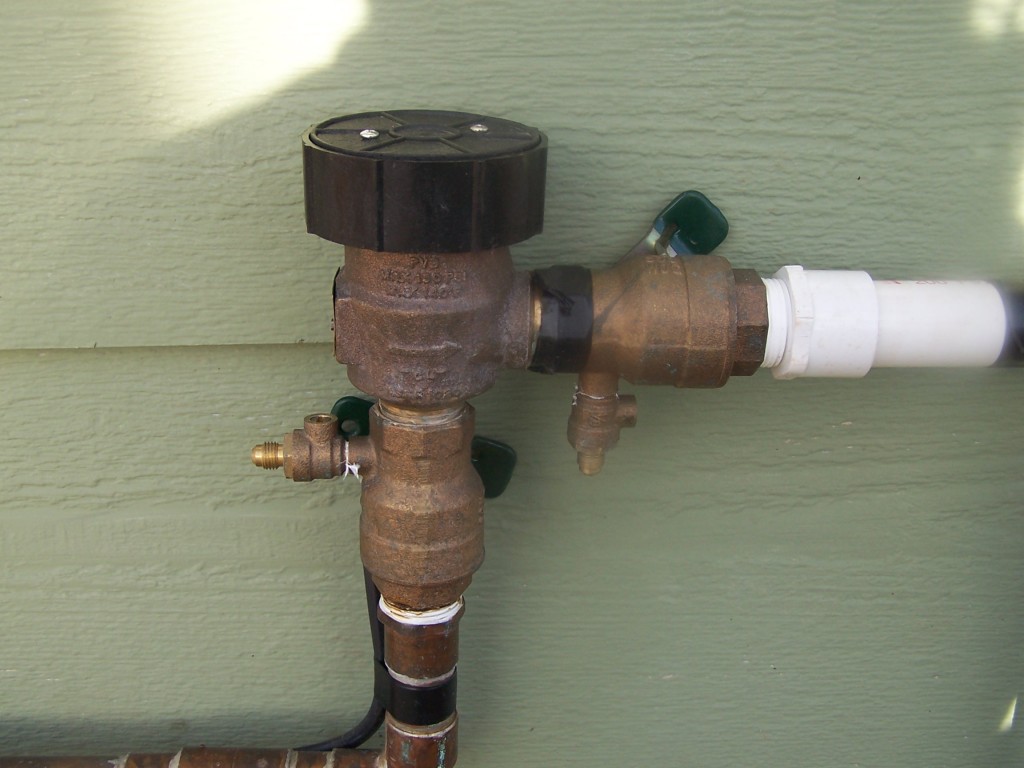
TURNING THE WATER BACK ON
- If you have not run your system during the winter, create a flush point by removing the sprinkler head at the end of each zone to allow any debris (or insects) to escape freely when the system is turned on
- Locate the valve boxes and inspect assemblies for damage
- Check the Backflow Preventer (if above ground) for any damage, then slowly open the isolation valve to allow the pipes to fill with water gradually.
- Avoid Water Hammer – high pressure surge of water in the lines that can cause burst pipes or even cracked fittings when the air filling the pipes is replaced by water
- Check the controller to ensure it’s functioning and the time and date are correct. If you have an older system, replace back-up batteries (replace every 6 months).

INSPECT FOR LEAKS AND PROPER FUNCTION IN SYSTEM AND SPRINKLER HEADS
- Check for leaks in pop-up spray heads. If you spot a leak, clean out debris if needed and make sure the caps are tight. Replace any internal parts if damaged.
- If you see uneven gaps in the fan-shaped spray, this may indicate a partially blocked filter or nozzle. Clean the filter. If it’s the nozzle, remove it and carefully clean it. They can scratch easily, so it may be faster to replace, and they are not expensive.
- Make sure the spray is reaching the next spray head. If it is spraying too far or not far enough, turn the radius adjustment screw on each nozzle
- Make sure pop-up rotor sprinklers are rotating and the water stream is shooting a good distance. Clean filters if needed. If this doesn’t solve the problem, replace the affected sprinkler head.
- Check that pop-up sprinklers are popping up fully. If not, the cause could be debris, damaged sprinkler or low water pressure, preventing it from rising. Check to make sure the valves on your backflow device are fully open to provide the highest water pressure.
- Check that pop-up sprinklers are lowering completely. Look for debris or dirt if not. If worn out seals are causing the problem, replace them. If the risers are broken, you’ll have to replace the sprinkler heads.
- Inspect valve boxes. If they are wet, look for worn parts, loose wiring, and water leaking out between fittings.
- Look for signs of broken or leaky pipes. You might see water bubbling up from the soil when the system is running, a depression in the ground, or a very wet or soft area.
- Check for proper draining, especially at lower elevations.
- Make sure each zone shuts off properly when you’ve finished inspection.
- Check that your irrigation sensors are operating (rain, soil, weather, etc)
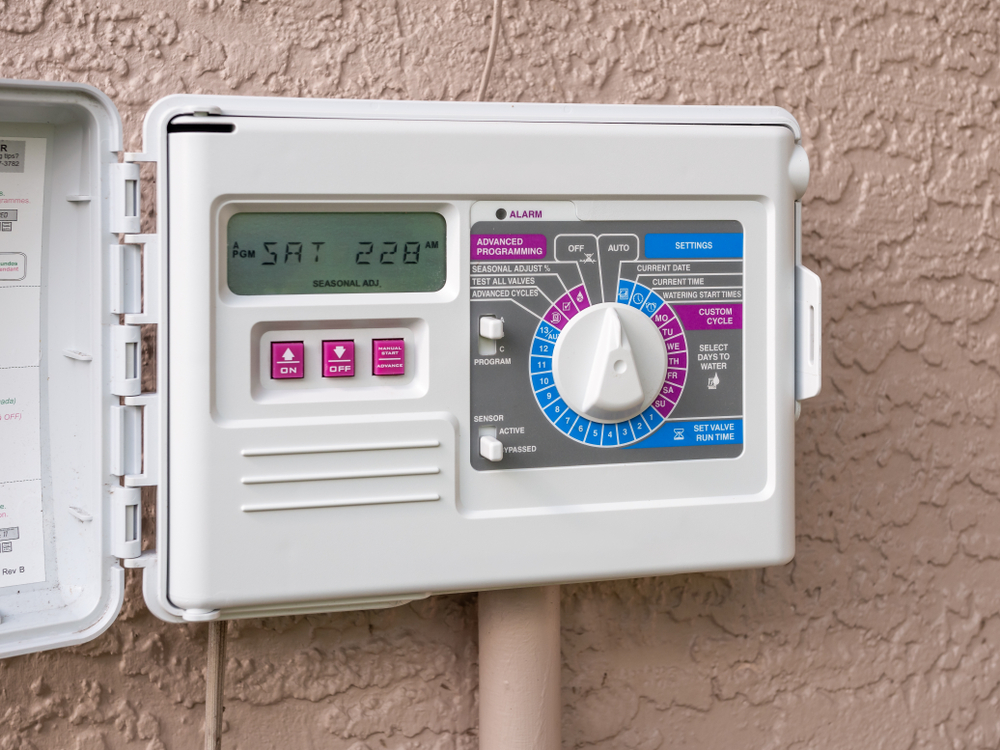
SET UP YOUR IRRIGATION SYSTEM FOR AUTOMATIC WATERING
All systems are different. If you are unsure how to set up your system to water on specific days and times, be sure to call an irrigation specialist to help.
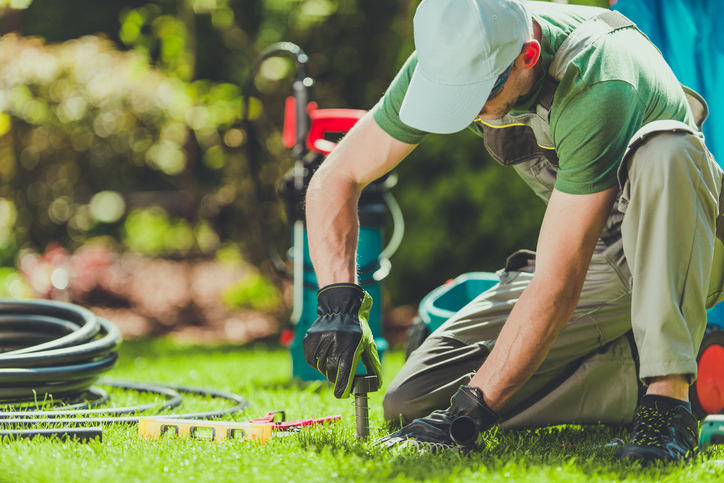
HAVING A PROFESSIONAL IRRIGATION SPECIALIST CHECK YOUR SYSTEM
Although you may be able to do much of the irrigation inspection on your own, it can be time consuming and possibly confusing. Professionals have the knowledge and experience to see potential problems that a homeowner may not see at first glance. If you are concerned about your irrigation system or unsure how to inspect it properly, a professional will be able to help.
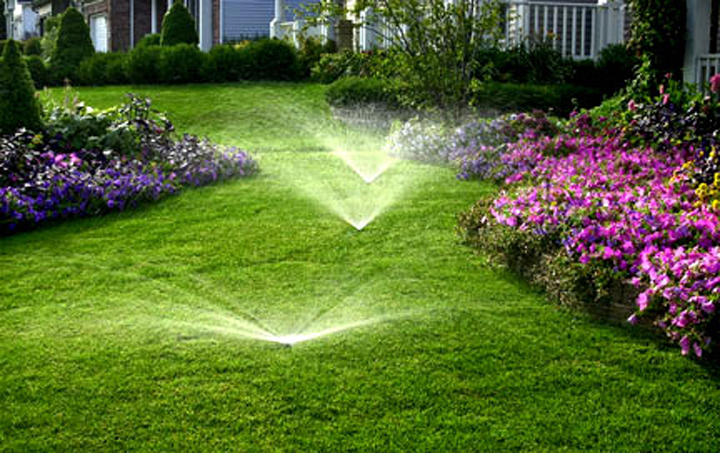
Keeping your yard irrigated during warmer months is so important to the beauty and health of your lawn and flower beds. Be sure to maintain a healthy irrigation system!



